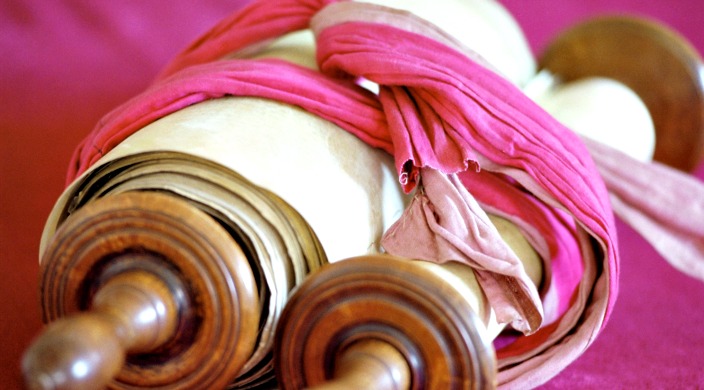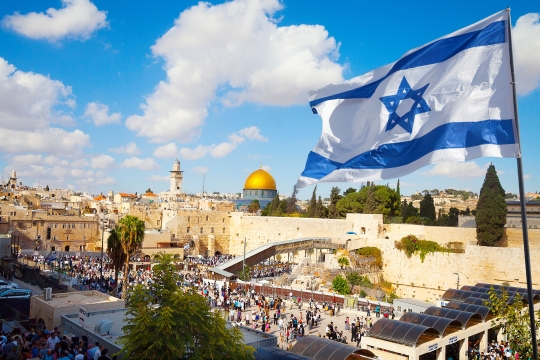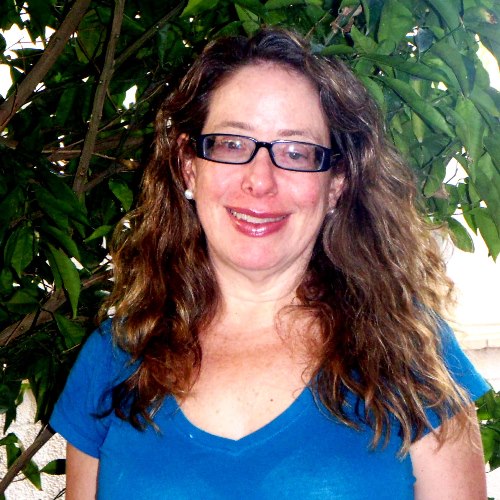
To my dear niece,
Although I am unable to be with you in person on this special day, I will be with you in spirit, thinking of you as you are called to the Torah for the first time. As I sit at my home in Israel, far from you, I am reviewing your Torah portion and want to share with you my blessing for you on this day.
Over the course of this year, as you prepared for your bat mitzvah, I also studied in a class that meets to discuss the weekly Torah portion. During my classes, I am continually reminded that the Torah, which has guided and united Jews throughout our history, is still relevant to us today. Though at first glance, a Torah portion such as yours may appear extremely challenging, it is possible to find meanings and lessons that relate to our lives.
Your parashah (weekly Torah portion), M'tzora, refers to restoring ritual purity, detailing the quarantine of a person afflicted with a skin condition and the rituals whereby such person is later brought back into the community. The process includes cleansing the body, burning the clothing, and temporarily separating the afflicted person so that others don't contract the condition.
From M'tzora, we learn that our ancestors were concerned about the health of individuals and the community – a concern that is still relevant and important to us today. Health has always been a community-wide issue, and throughout our history, Jews have been at the forefront of medical research and implementing new methods and technologies to improve healthcare for people throughout the world. We can see the State of Israel's commitment to healing and healthcare as an extension of this thread from the Torah and from other principles that are deeply rooted in our tradition: tikkun olam (repairing the world), chesed (performing acts of loving kindness and focusing on others), and tzedek (justice).
Today, Israel takes the responsibility of helping and healing humanity very seriously. For example, near my home in Nahariya, several miles from Israel's border with Lebanon, scores of Syrian civilians, including many children injured in their country’s civil war, have been treated at the Galilee Medical Center. This humanitarian effort takes place here and at several other Israeli hospitals because the injured – even though they technically are citizens of an enemy country – are brought for treatment by IDF troops stationed at Syria's border with the Golan Heights.
When Israeli soldiers finish their medic training and take the oath, as your cousin did last year, they state:
"I, a soldier in the Medical Corps of the Israel Defense Forces take an oath and swear on this day, to extend a helping hand to the wounded and to the sick. Whether common or distinguished, friend or enemy. To each with respect I promise to bring healing and cure to the body and soul, to be discrete, faithful, and act with dignity, to weigh all my actions with reason, discretion, and compassion.…"
It is the duty of these soldiers to provide care for anyone in need, regardless of religion, skin color, or nationality – friend or enemy. This and other lessons you may learn, which find a source in the Torah, can guide you in your path to live a righteous life.
In A Jewish Woman's Prayer Book, Dr. Aliza Lavie points out that in some Italian Jewish communities, Deborah's Song of Praise, found in the Book of Judges, is recited by each young woman as part of a communal bat mitzvah ceremony. In biblical times, Deborah initiated a war, which was won thanks to Yael, another woman, against the kingdom of Hatzor. According to
Dr. Lavie, the recitation of Deborah's Song of Praise is a "clear statement to the bat mitzvah girl: Deborah – political leader, judge and prophetess – is a worthy model of emulation."
Throughout your life, you have demonstrated that you follow in the path of Deborah and other Jewish women leaders. As a bat mitzvah, you become obligated in the commandments of the Torah and officially take your place as part of the Jewish people, a connection that can provide meaning and enrich your life – as an individual and as part of the greater community. You have already demonstrated your ability as part of a team, whether playing volleyball or softball, or in the classroom, where you recently were part of a group that won a grant to educate others about the harmful effects that microbeads in facial cleansers can have on ocean animals. You have also exhibited individuality by playing the piano and leadership abilities in various situations that you have related to me.
On your bat mitzvah, I encourage you to continue to embrace Jewish rituals and traditions in uplifting and meaningful ways. As you continue to learn, identify with your rich heritage, and perform mitzvot over the course of your life, you will be a strong living link in the chain of Jewish women and men, past and present, throughout the world that began with Abraham and Sarah, and continues to the present day.
Kol hakavod (good job) on your accomplishments. May you remain steadfast on the path you have set for yourself as a source of pride to your family and community.
Mazel tov!
Love,
Aunt Sharon
Related Posts

Parenting Adult Children

Faith, Justice, and Israel: Being Proud


